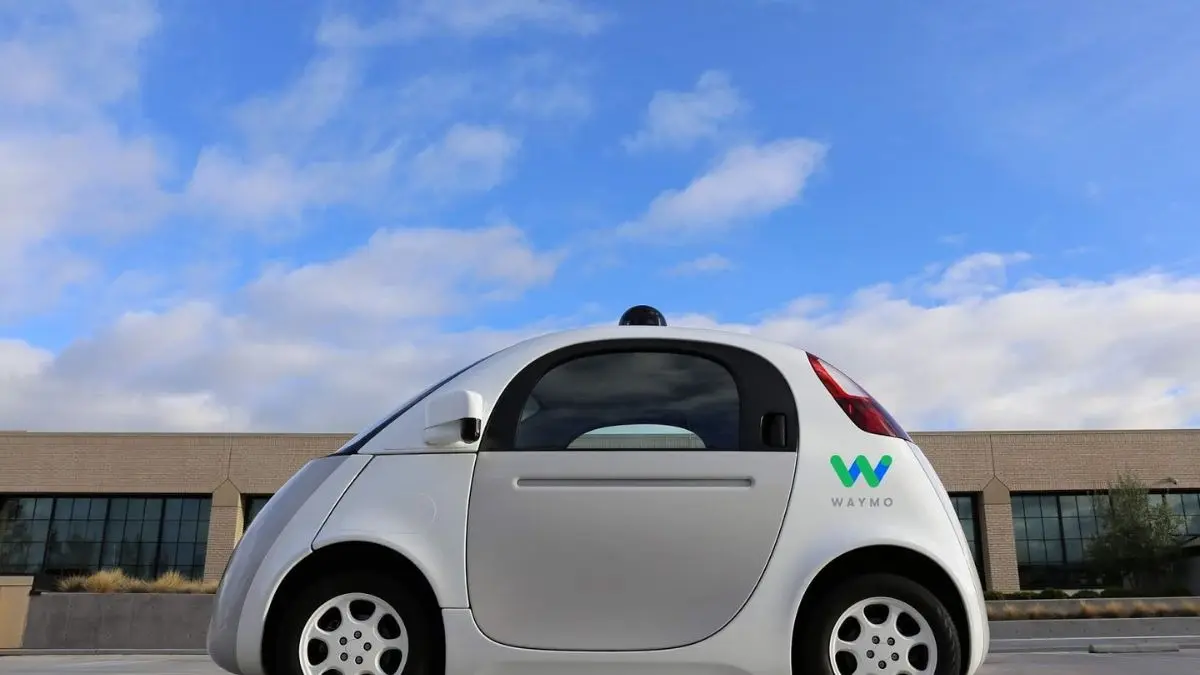Updated 25 April 2025 at 13:41 IST
'We're doing it now' - Alphabet CEO Sundar Pichai Shares Big Update On 'AI-Powered Self-Driving Car' By Google
During the earnings call, two major milestones were highlighted: Waymo’s ability to handle airport pick-ups and drive on freeways.
- Republic Business
- 3 min read

Alphabet is making significant strides in the race towards self-driving cars, with its autonomous driving unit, Waymo, leading the charge. During the company’s first-quarter earnings call, CEO Sundar Pichai shared that Waymo is now completing over 250,000 paid passenger trips every week, a fivefold increase from the same time last year.
This surge in demand marks a key moment for the autonomous driving industry and positions Waymo as a serious player in the next wave of “transportation innovation”, according to the company.
Waymo’s Expanding Reach
Google's parent company claimed that Waymo has had a strong start this year, quietly expanding its services across several cities in the United States. Currently, it offers commercial services in Phoenix and San Francisco and has launched pilot programmes in Austin. Later this summer, it plans to open services to the public in Atlanta, with future expansions to Washington D.C. and Miami slated for 2026.
Advertisement
During the earnings call, two major milestones were highlighted: Waymo’s ability to handle airport pick-ups and drive on freeways. These improvements are crucial as the company moves beyond urban areas and into more complex driving situations.
“Waymo has grown significantly over the last year, and this shows we’re on the right path to making autonomous driving a reality for everyday users,” said Pichai.
Advertisement
Also Read: Google Parent's Waymo to Launch Self-Driving Cabs in US Capital Next Year | Republic World
AI Fuels the Transformation
What sets Waymo apart is its use of artificial intelligence, as per teh company's assertions. The AI isn't just used for route planning or detecting obstacles; it helps the vehicle understand its surroundings in real time. The system is designed to handle real-world challenges like merging traffic, unpredictable pedestrian behavior, and complex intersections, according to Alphabet
This data-driven approach helps Waymo cars get “smarter” with every ride. As the company grows, its AI continues to improve, adapting to new roads and city layouts.
“Testing in real-world conditions is essential for refining this technology,” Pichai noted, adding, “As we expand into more cities, we get more opportunities to test and enhance our technology.”
Building Key Partnerships
Waymo is also working closely with other players in the mobility space. Its partnership with Uber allows users to book autonomous Waymo rides directly through the Uber app, making the experience more seamless and broadening Waymo’s reach.
“Our partnership with Uber shows how we can integrate our technology with existing systems to benefit both consumers and the industry,” said Pichai.
These partnerships play an important role in helping the public embrace autonomous rides as self-driving cars move from a novelty to a practical mode of transport.
Looking Ahead
Waymo’s future plans go beyond city limits. With its technology now capable of handling airport trips and freeway driving, the company is laying the foundation for a flexible, scalable transportation service.
Waymo believes its product will help reduce traffic, improve road safety, and make daily commutes quicker and more accessible through AI-powered automation.
“The progress we’ve made with Waymo over the past year is just the beginning of an exciting new chapter in the future of transportation,” Pichai concluded.
Published By : Avishek Banerjee
Published On: 25 April 2025 at 12:44 IST
